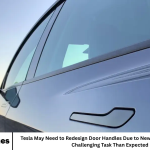Former U.S. President Donald Trump recently claimed that he prevented a potential war between India and Pakistan. According to him, he used the threat of 200% tariffs to influence both countries and avoid conflict. This claim has attracted attention from media, political analysts, and global observers. It raises questions about the role of economic measures in international diplomacy.
- Background of India-Pakistan Relations
- Trump’s Claim
- Use of Economic Tools in Diplomacy
- Reactions from Experts
- Implications for U.S. Foreign Policy
- India’s Perspective
- Pakistan’s Perspective
- Historical Context of Economic Diplomacy
- Potential Criticism
- Symbolic Significance
- Lessons for International Relations
- Media Reactions
- Frequently Asked Questions
- Conclusion
Background of India-Pakistan Relations
India and Pakistan have a long history of conflict. The two countries have fought several wars, mostly over the Kashmir region. Tensions often rise due to border skirmishes and political disputes. The international community frequently monitors the situation, as any escalation can affect global stability.
Trump’s Claim
Trump stated that he directly intervened to prevent conflict. He said that by threatening both nations with heavy tariffs on trade with the U.S., he managed to persuade them to reduce tensions. While Trump did not provide detailed evidence, he insisted that his actions were crucial in maintaining peace.
Use of Economic Tools in Diplomacy
Economic measures such as tariffs are usually applied to influence trade and protect domestic industries. However, they can also serve as diplomatic tools. By using financial pressure, countries can encourage others to make political decisions. Trump’s claim suggests that tariffs can be more than trade tools—they can also help in preventing wars.
Reactions from Experts
Political analysts have mixed reactions to Trump’s statement. Some believe that economic threats can influence international decisions, especially when they affect trade significantly. Others argue that diplomacy, dialogue, and backchannel negotiations play a larger role in preventing wars. Skepticism exists about whether tariffs alone could have prevented conflict between India and Pakistan.
Implications for U.S. Foreign Policy
Trump’s statement highlights his approach to foreign policy, which emphasized economic leverage. His administration often used tariffs to negotiate with countries like China, Mexico, and Canada. The claim about India and Pakistan fits this pattern, showing that Trump viewed economic pressure as a core tool in global diplomacy.
India’s Perspective
India has not officially commented on Trump’s claim. Analysts suggest that India relies on multiple factors, such as military readiness, internal politics, and diplomatic negotiations, to maintain peace with Pakistan. While tariffs may have some influence, India’s decisions are likely based on broader considerations.
Pakistan’s Perspective
Similarly, Pakistan has not verified Trump’s claim. The country continues to focus on diplomatic efforts and regional stability. Any external influence, such as threats of tariffs, may play a minor role compared to domestic and regional political dynamics.
Historical Context of Economic Diplomacy
There are historical examples where economic pressure affected international decisions. Sanctions, trade restrictions, and financial threats have been used to encourage nations to negotiate or comply with international norms. Trump’s claim fits into this context, showing how economic influence can intersect with diplomacy.
Potential Criticism
Critics argue that using tariffs to prevent war is risky. Economic pressure can strain trade relations, hurt citizens, and create long-term tension. While immediate results may occur, the long-term consequences must be considered. Coercion through economic means can lead to mistrust and resentment.
Symbolic Significance
Even if Trump’s claim is partially exaggerated, it highlights the perception of U.S. economic power. It shows how global leaders view the United States as a key player that can influence major international events. Such statements also emphasize the importance of strategic communication and media coverage in shaping public opinion.
Lessons for International Relations
Trump’s statement reinforces the lesson that diplomacy can involve multiple tools, including economics, military presence, and negotiation. Nations can use economic leverage to complement traditional diplomacy. It also underscores the importance of leadership and timely decision-making in preventing conflicts.
Media Reactions
Global media reported Trump’s statement widely. News outlets analyzed the credibility and implications of his claim. Some highlighted it as an example of innovative diplomacy, while others questioned its accuracy. The coverage reflects how statements by prominent leaders can shape international perception.
Frequently Asked Questions
What did Trump claim about India and Pakistan?
Trump claimed he prevented a potential war between India and Pakistan by threatening 200% tariffs on their trade with the U.S.
Is there evidence to support Trump’s claim?
No independent verification has been provided. Analysts remain skeptical and suggest that multiple factors influence India-Pakistan relations.
How can tariffs prevent war?
Economic pressure can influence political decisions, but preventing war typically involves multiple factors, including diplomacy and negotiation.
How did experts react to Trump’s claim?
Experts were divided. Some believed economic leverage could help, while others argued that diplomacy and backchannel talks are more important.
What is the significance of this claim for U.S. foreign policy?
It reflects Trump’s approach of using economic power as a tool for diplomacy and highlights the influence of U.S. economic policies on global politics.
Conclusion
Donald Trump’s claim about preventing a war between India and Pakistan through 200% tariffs is both bold and controversial. While skepticism exists, the statement draws attention to the role of economic tools in diplomacy. It highlights the complex interplay between trade, politics, and international peace. Regardless of its accuracy, the claim has sparked discussion on leadership, global influence, and the strategies nations use to maintain stability.









